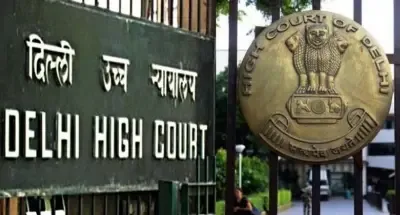How Should the Delhi HC Approach Maintenance Cases?

Synopsis
Key Takeaways
- Balanced Approach: The importance of a balanced and humane approach in maintenance proceedings.
- Judicial Responsibility: Emphasizing the judicial responsibility to ensure fairness and transparency.
- Understanding Context: Orders should reflect an understanding of human conditions.
- Impact of Delays: Recognizing that delays can arise from incomplete submissions by parties.
- Comprehensive Framework: The need to adhere to the framework set by the Supreme Court.
New Delhi, Oct 30 (NationPress) The Delhi High Court has recognized the significant workload and intricate realities encountered by family courts, emphasizing the necessity for a balanced and humane approach in maintenance cases.
A single-judge Bench led by Justice Swarana Kanta Sharma noted that while family courts are inundated with emotionally charged disputes and pressing time constraints, they must strive to ensure that maintenance orders reflect a judicious application of mind based on the available material, rather than mere mechanical assumptions.
Justice Sharma stated, "The volume of cases before the family courts is considerably high, and judges are frequently required to hear numerous matters daily, many of which involve complex and emotionally charged disputes," stressing that "the Court must endeavor to achieve a balance between expedition and fairness."
The Delhi High Court's remarks were made while overturning an interim maintenance order issued by a family court and remanding the issue for renewed consideration.
It asserted that decisions regarding maintenance, particularly at the interim stage, must harmonize compassion with practicality and reasoned adjudication.
Justice Sharma further commented that despite the comprehensive framework established by the Supreme Court, family courts often deviate from established principles or fail to provide sufficient reasoning when determining interim maintenance.
Noting that "expedition cannot come at the cost of reason," the Delhi High Court stated that even interim orders should present the reasoning behind the maintenance amount.
"While it may not be feasible to conduct a thorough examination of every financial detail at the interim stage, the orders issued should not lack reasoning or clarity regarding how the maintenance amount has been determined," the judgment asserted.
The Delhi HC remarked that delays are frequently caused by the parties involved, who submit incomplete or vague affidavits of income and assets, adding to the burden on family courts. Nonetheless, it emphasized that judicial officers must ensure that "even within practical constraints, the orders embody fairness and transparency."
"This process is not merely a financial calculation but a judicial responsibility impacting the dignity, sustenance, and stability of lives. Consequently, maintenance orders must reflect not only legal correctness but also an understanding of the human conditions underlying the pleadings presented before the courts," Justice Sharma noted.
The Delhi High Court instructed that copies of its judgment be disseminated to all principal district judges and family courts throughout Delhi, as well as to the Delhi Judicial Academy for inclusion in training modules.
"Let a copy of this judgment be circulated to all the esteemed Principal District and Sessions Judges of the District Courts in Delhi, with a directive to forward it to all Judicial Officers, particularly those presiding over Family Courts, so that the observations made herein are duly acknowledged and adhered to in letter and spirit," it directed.









